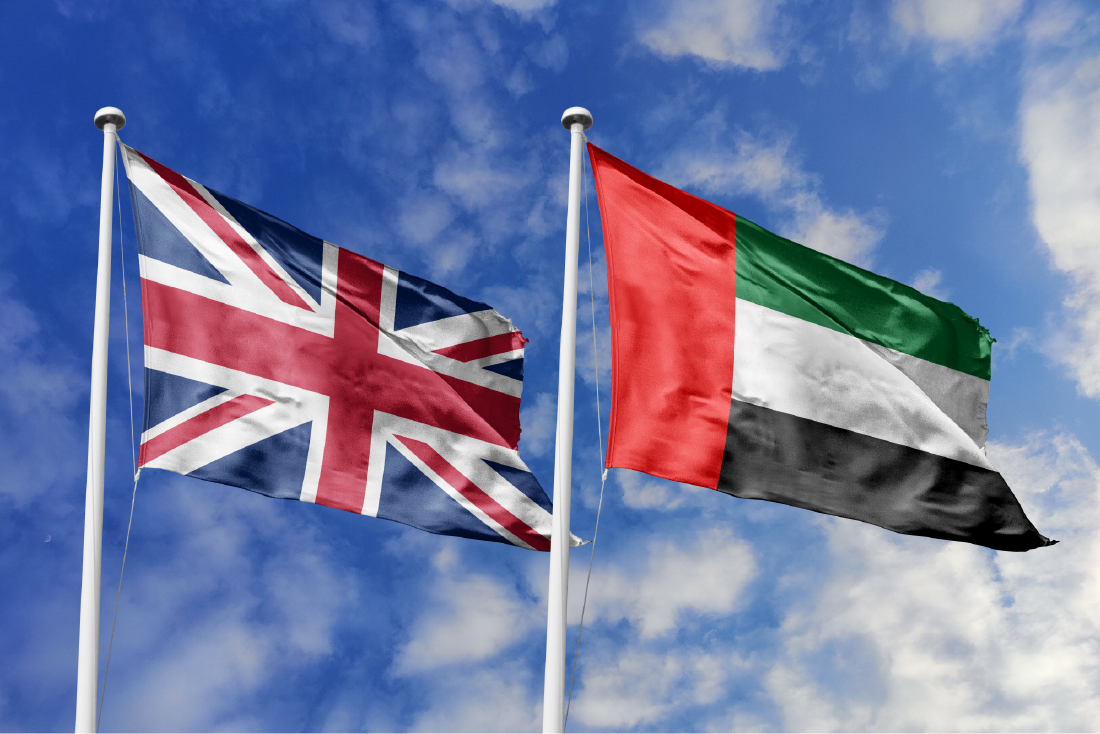
Is the UK still an investment hotspot, or could the United Arab Emirates, a 50-year-old state with a population of around 11m, become a genuine alternative? We caught up with James Routledge, our Head of Investment, to explore if the UAE could compete with the UK in global investment management and also whether the UK is a favoured by UAE-based investors as a destination for investing in real estate.
Whilst over 95 per cent of the UAE’s oil and gas reserves are located in Abu Dhabi, the city is successfully diversifying and has attracted a growing share of wealth management business. Within the last few weeks, we have seen an influx of money and fund managers into the city including PGIM and Nuveen.
Could this signal that the UAE will become a genuine alternative to global financial hubs, including London? Whilst not equal in terms of ranking in the World Economic Forum’s (WEF) Global Competitiveness Index, where the UK is ninth and the UAE is 25th, there are other factors to consider.
The regulatory framework for setting up financial businesses in UAE is less stringent than many other global centres; the low tax regime is very attractive, and from an inward investment perspective, the UAE economy is characterised by rapid growth and high returns. A perfect destination for investors looking to invest in UAE businesses, as well as wealth management companies running global businesses in a low-tax location.
Beyond the capital market argument, Abu Dhabi is successfully promoting itself as a tourist destination with a strong cultural offer.
Compare that upbeat vibe with the UK. Our own Government has painted a depressing picture of a nation with a crisis-hit public service sector, housing shortages, increased pressures on employers and the farming sector, as well as a transport infrastructure strategy which is creaking.
But from a capital markets perspective, the UK is internationally recognised for being a stable economy with a robust legal framework, which tends to attract more conservative investors looking for security. The UK has always been regarded as a safe haven for global investors, and we should also be proud of the fact that we are a top 10 contender in the race to net zero.
We are also global leaders in life sciences, AI, technology, financial services, fintech, green energy, education and - of course - culture and media.
However, the case for the UAE is also strong. Being a bridge between the east and the west, it is proving an attractive proposition for institutional and private investors looking to invest in technology, health, education, renewable energy and transportation, as well as money management services.
Its competitiveness as a destination for investment and money management is enhanced by the fact that legislative changes, allowing full ownership of enterprises were introduced to attract funding from global investors. Added to that, the combination of no personal income tax and only five per cent VAT on goods and services makes it an attractive place.
Therefore, it all depends on whose optics you view the world through. With official bank base rates at similar levels in the US, UAE and UK, it is challenging to make an urgent case to invest in cross-border real estate during the currently turbulent geopolitical and uncertain economic environment. But this is all relative.
Considering that most international investors will invest across North America, Europe and the Asia-Pacific region, in my opinion, the UK currently has distinct advantages over continental European countries.
These include political stability with the new government having a sizeable parliamentary majority, a relatively high central government investment programme, stronger anticipated GDP growth than European competitors and a more liquid real estate investment market based on MSCI analysis.
High interest rates, relative to investment yields, were a factor in curbing investor demand for UK property over the past two years. A currently unhelpful spike in borrowing costs and gilt yields will hopefully give way to a gradual reduction in interest rates and therefore lead to more attractive financing opportunities in the UK, as investors diversify portfolios globally.
The diverse nature of the UK property market provides opportunities for investors of all types, including those from the UAE, as it offers access to good quality assets across sectors in the UK which are Shariah compliant, spanning the living, industrial/logistics, energy, life sciences, healthcare, roadside and grocery sectors.
Whilst we have recently seen Gulf-based investors focus on UK muti-let industrial and student accommodation strategies due to their strong underlying value, some are also focused on long-lease strategies involving offices, supermarkets and budget hotels, demonstrating a growing understanding of diverse opportunities outside Central London.
So will the volatility in the Middle East shake the confidence of investors in Middle East markets, no matter how far removed they are from the front lines?
Will the UK Government’s growth agenda and attempts to improve diplomatic relationships act as a honey pot for infrastructure and green investors and will the fundamentals of the UK market continue to attract investors in our living sciences, logistics, living and urban real estate sectors?
I hope so.





